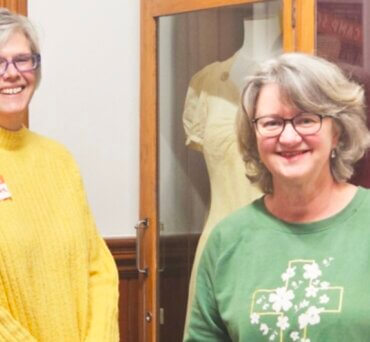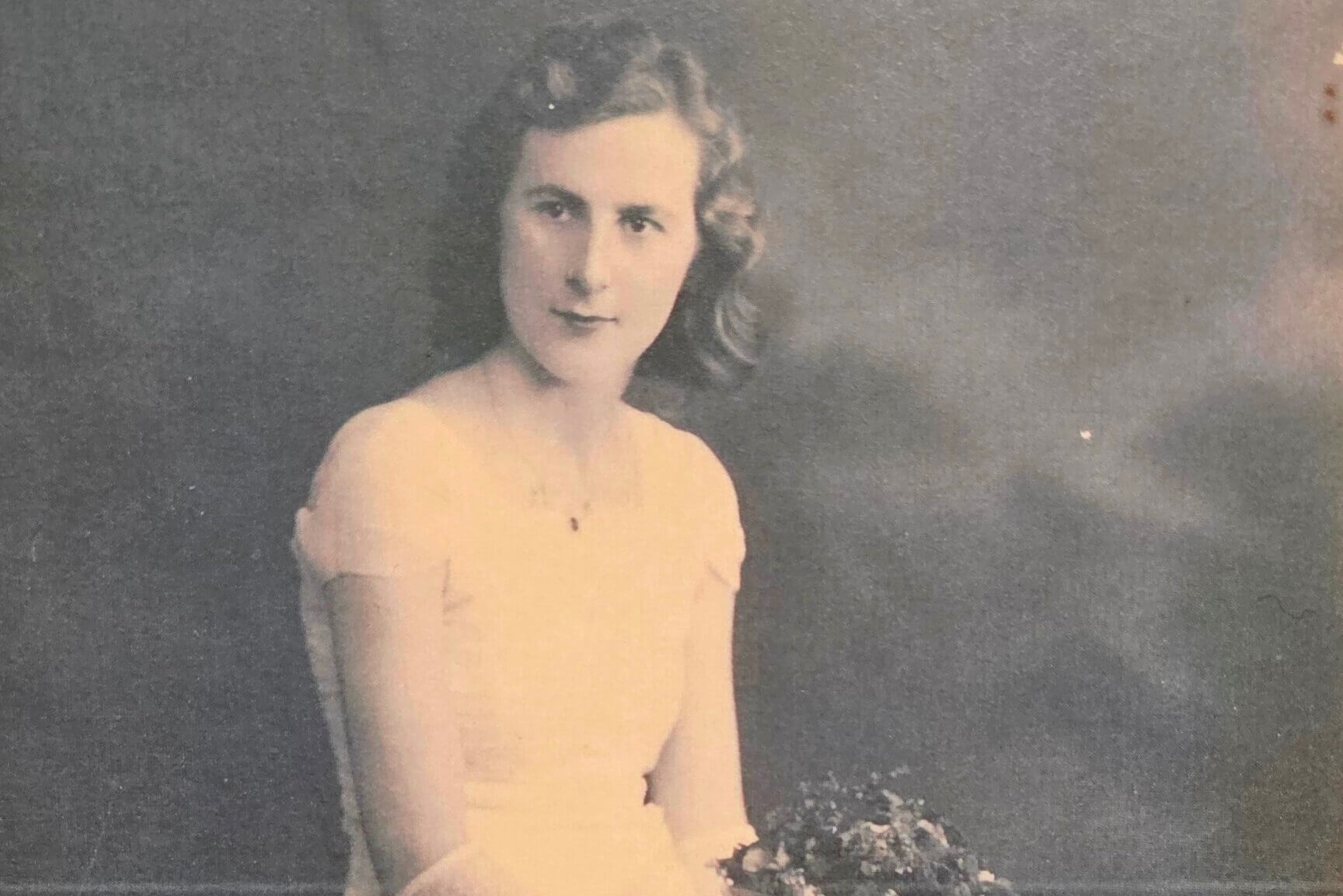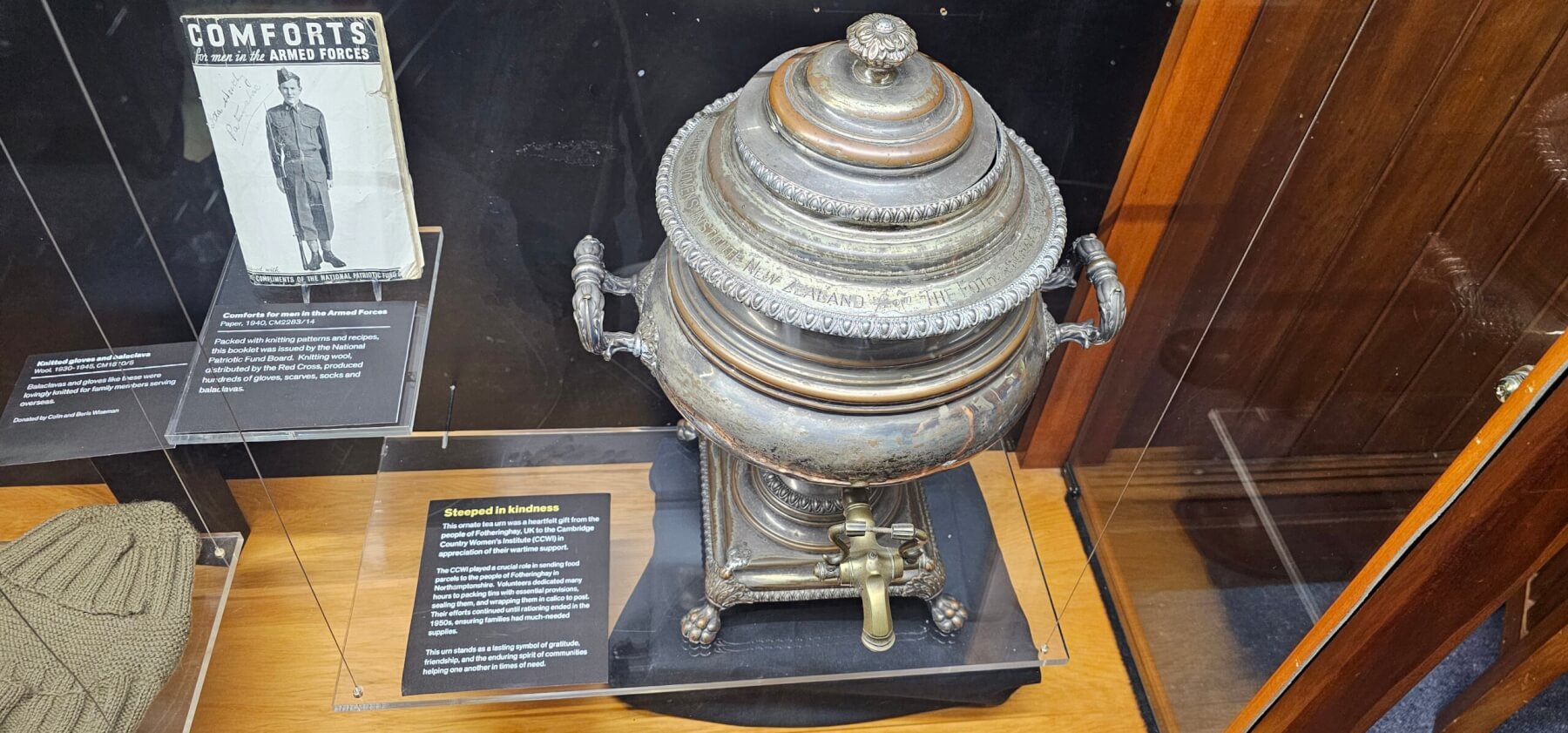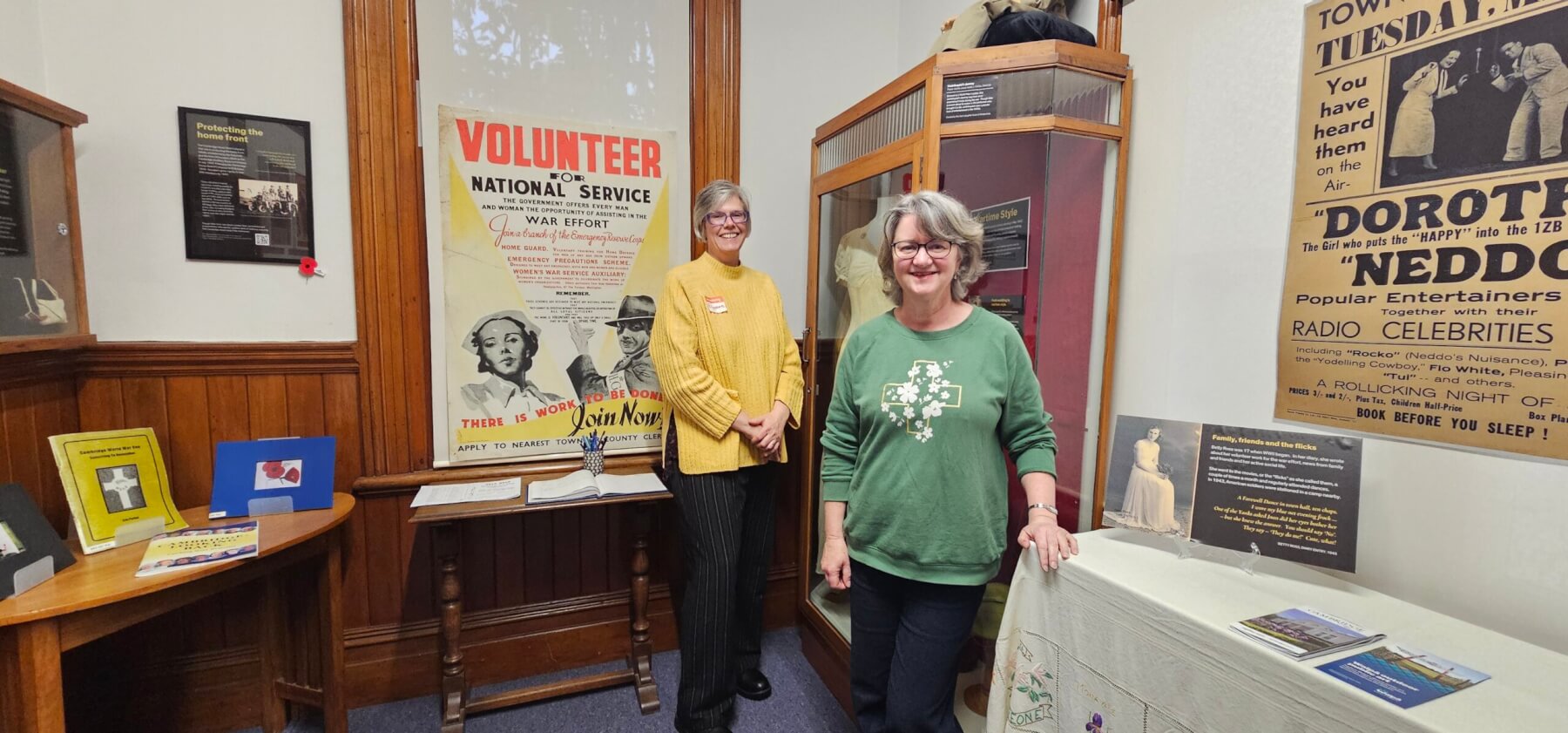
Cambridge Museum manager Elizabeth Harvey, left, and administrator Karen Payne
Betty Ross was just 20 when she began her diary in 1940s Cambridge.

Betty Ross who features in Cambridge Museum’s Doing Your Bit exhibition. Photo: Cambridge Museum
She wrote of her volunteer work, news from family and friends and her social life.
When Cambridge Museum staff heard about Betty’s diary from her daughter-in-law Sue Peake, we offered to transcribe it to preserve as an archive. We discovered a unique insight from a demographic that is rarely heard in war accounts: that of a single young woman living in a country town half a world away from the action.
Betty was born in 1922 and was 17 when the war began. A typical teen, she was at an age when socialising with other young people was an important focus in her life. And this at a time when most young men in the area were sent overseas.

This ornate tea urn was a heartfelt gift frm the people of Fotheringhay in the UK to the Cambridge Country Women’s Institute in appreciation of their wartime support. It is part of the Doing Your Bit exhibition. Photo: Mary Anne Gill
For a year from June 1942, New Zealand became an important US military base in the Pacific. At any one time, around 50,000 American servicemen were living in camps, including near Cambridge. Betty’s writing is threaded with contemporary slang picked up from the servicemen, and from the ‘flicks’ showing at the local cinema.
Betty’s son David Peake keeps the diary as a treasured family heirloom but recognises the importance of preserving its contents for future generations.
Betty passed away in 1992, but her words live on as part of “Doing Your Bit” – an exhibition on Cambridge’s contribution from home during World War II.
The museum offers access to two different scanners as part of a free service to encourage people to scan and share family documents.
See: Nothing to do …

Cambridge Museum manager Elizabeth Harvey, left, and administrator Karen Payne inside the Doing Your Bit exhibition. Photo: Mary Anne Gill








